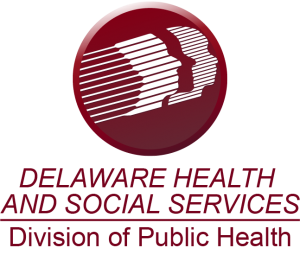NEW CASTLE (Oct. 18, 2017) – As part of the Department of Health and Social Services’ work to develop a health care spending benchmark, the Delaware Health Care Commission has awarded a contract to accelerate payment reform to Mercer Health & Benefits LLC. The $889,947 contract, which takes effect immediately, will support the state’s efforts in four main areas: health care payment reform implementation models, legal analysis, economic modeling and analysis, and open data transparency strategies.
Governor John Carney signed House Joint Resolution 7 in September, which authorized DHSS to develop a health care spending benchmark that is linked to the state’s rate of economic growth. Mercer’s contract will dovetail with the work being done with stakeholders to develop the benchmark and come under the $35 million federal grant Delaware received from the Center for Medicare and Medicaid Innovation (CMMI) to change the way health care is delivered and paid for in the state.
“Mercer brings a strong level of expertise to help us accelerate health care payment reform in our state,” said DHSS Secretary Dr. Kara Odom Walker, a board-certified family physician. “With Mercer and its subcontractors on the ground, we will be able to explore what is needed to change the way health care is paid for in Delaware that, ultimately, will lead to better health for the people of our state, an improved health care experience and at a lower cost. We look forward to working with Mercer and stakeholders in Delaware to accomplish our goal of payment reform.”
In a federal analysis released this summer, Delaware had the third-highest per capita spending for health care in the country, behind only Alaska and Massachusetts. In 2014, Delaware’s per-capita rate of $10,254 was 27 percent higher than the U.S. average. The Centers for Medicare and Medicaid Services (CMS) estimated that if Delaware continues at that pace, total health care spending in the state will more than double from $9.5 billion in 2014 to $21.5 billion in 2025. In terms of overall health, Delaware ranks only 31st among the states, according to America’s Health Rankings.
The benchmark also will serve as a major step in transforming Delaware’s health care system to a more outcome-driven system and away from a system that pays for care based solely on the number of room days, visits, procedures and tests. Mercer has enlisted the support of key subcontractors to provide subject matter expertise in specific areas to bring the full complement of perspectives and experience to this work. The subcontractors include:
• Bailit Health Purchasing, LLC
• Center for Health Care Strategies, Inc.
• National Committee for Quality Assurance
• Advances in Management, Inc.
Mercer and its four subcontractors will work with DHSS and stakeholders in four areas:
Health care payment reform implementation models: Mercer will develop solutions for assessing and implementing any combination of value-based alternative payment models. The modeling will include limited-, shared- and full-risk arrangements.
Legal analysis: Mercer will work with the State to provide a legal analysis of the development of parameters and framework for alternative payment models. A proposed authority to monitor ongoing activities under payment reform and assistance in developing contracts for new value-based payment arrangements will also be included.
Economic modeling and analysis: Mercer will propose an economic analysis of current payer data, attribution and estimates of global payments. The proposed solution will include recommended timelines for payment system transition and performance milestones. The economic analysis will include, but is not limited to, a staged, three-year model of a global payment system with various levels of health care growth targets and benchmark growth rates.
Open data transparency strategies: Mercer will provide guidance in developing a strategy to enable the use of any available claims and/or clinical data for transparent reporting and monitoring performance against common, shared metrics measuring health care quality and access to appropriate care. The strategy should incorporate recommendations to leverage the existing structures of the Common Scorecard and the Health Care Claims Database, which will include working collaboratively with the Delaware Health Information Network
-30-
The Department of Health and Social Services is committed to improving the quality of life of Delaware’s citizens by promoting health and well-being, fostering self-sufficiency, and protecting vulnerable populations.
